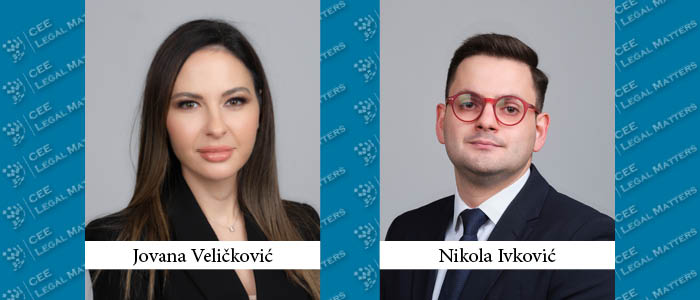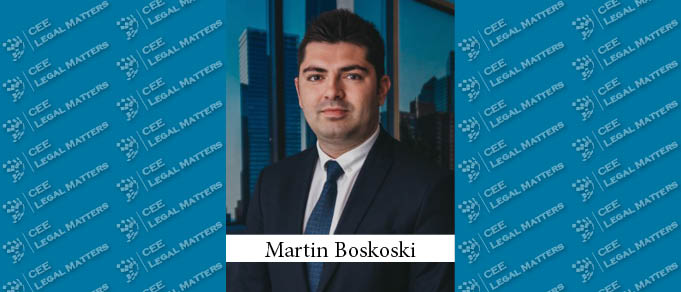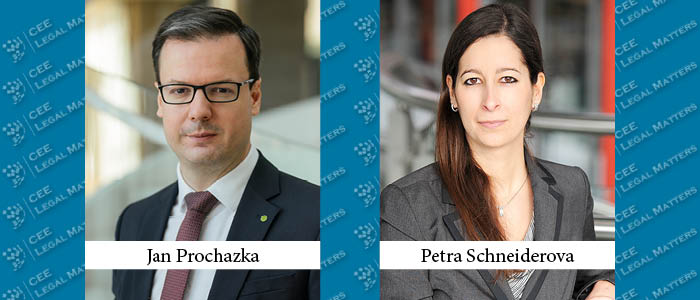The Act No. 497/2022 Coll. on the screening of foreign investments and on amendments and supplements to certain acts, as amended, and Slovak Government Regulation No. 61/2023 Coll. establish critical foreign investments rules (the "FDI legislation"). In cooperation with the Ministry of Economy of the Slovak Republic (the "Ministry") we have prepared an overview of some practical issues in connection with the FDI legislation.
Recent AML Developments in Moldovan’s Financial Services Sector
One of the main recent buzzwords in Moldova is AML compliance at the convergence of securities and banking which strictly follows the recommendations of the report from the fifth evaluation round of the MONEYVAL Committee of the Council of Europe, in order to transpose the provisions of Directive 2018/843 of the European Parliament and of the Council of May 30, 2018, as well as updated provisions of the Financial Action Task Force Recommendations.
State Register of Sanctions will be Created in Ukraine
On 29 July 2023, Law of Ukraine “On Amendments to Certain Legislative Acts of Ukraine on the Application of Sanctions” No. 3223-IX, dated 13 July 2023 (“Law”), enters into force.
Decision of the Council of Ministers No. 413, On the Determination of Entry, Residence, and Employment in the Republic of Albania of Foreign Nationals, Employees of an IT Company
On 07.07.2023, the Council of Ministers of the Republic of Albania adopted the Decision "On the determination of entry, residence, and employment in the Republic of Albania of foreign nationals, employees of an IT company" (hereinafter referred to as the “Decision”).
AI in Agriculture: Navigating Liability and Regulation
The world’s population is on the rise, increasing the demand for food. The United Nations estimates that the world population will reach 9 billion people in approximately 15 years; by 2050, it is expected to reach 10 billion people. This means there will be an additional two billion people to feed, necessitating farming and food production to become more efficient.
Protection of Personal Data in Clinical Trials
May 2023 marks five years since the application of the General Data Protection Regulation, better known as "GDPR", and its requirements still pose a number of challenges for organizations. On one hand, this is because ensuring compliance with GDPR is not a "one-time exercise" but a continuous process "from within", requiring synchronization with all other activities in the organization. On the other hand, companies must also take into consideration innovations "from the outside", including new regulations and technologies, by promptly addressing data protection risks.
Bosnia and Herzegovina Investment Guide Series – Taxes in Bosnia and Herzegovina
A brief overview of value added tax and direct tax in Bosnia and Herzegovina, including specifics for direct tax in Federation of B&H, Republic of Srpska, and Brcko District of Bosnia and Herzegovina.
Albania – Legalization of Cannabis for Medical and Industrial Purposes
On Friday 21 July 2023, the Albanian Parliament adopted a law which legalizes medical cannabis and industrial hemp (“Cannabis Law”). The Cannabis Law allows licensed companies to cultivate and process cannabis and determines the criteria which must be met to obtain such a permit, but also regulates the cultivation process of the plant and the production of its by-products for medical and industrial purposes.
US Supreme Court Justices Unite Against Parodying Trademarks
At the beginning of June 2023, the Supreme Court of the United States ruled in favor of the famous Jack Daniel’s distillery in a trademark infringement lawsuit after a squeaky toy for dogs appeared on the market, which resembles a bottle of the famous whiskey Jack Daniel’s Old No. 7 Black Label Tennessee Whiskey in the context of shape of the bottle and other elements (trade dress).
Cartel Law – Records and Data of Your Telecommunication Traffic Now as Evidence
The content of communications recorded by criminal law enforcement authorities (LEAs) and traffic and location data; Not only voice communications, but also electronic messages made not only from a mobile phone, but also from landlines and other devices; Records of surveillance of persons and property by the LEAs. This and other information have so far reached the Czech national competition authority (Czech NCA) without being able to use it legally as evidence in the proceedings.
New EU–US Data Privacy Framework – Simplified Data Transfer to the US
With the Schrems II judgment, which invalidated the Privacy Shield, the CJEU (Court of Justice of the European Union) make it more difficult to comply with the GDPR for companies transferring personal data from the EU to the US. However, the new EU-US Data Privacy Framework (or “Framework”) adopted on 10 July aims to put an end to this situation. But how does the Framework make data transfers between the EU and US easier? In this short article, we explain the basics of the new Framework and answer the above question.
From Collective Rights to Individual Justice: Class Action in the USA and Its Prospects in Serbia
On July 4, the United States celebrated Independence Day, which reminded us of the Declaration of Independence from 1776 that marked the establishment of the United States. This prompted us to reflect on the numerous distinctive legal achievements of the United States, inspiring us to explore the phenomenon of class action. Originating from across the Atlantic, this legal institution has found its place in continental European jurisdictions, sparking discussions within the professional community about its potential incorporation into Serbia’s legal framework.
Does The Violation of the GDPR Always Mean Unlawful Data Processing?
Based on the GDPR, data controllers have several obligations, such as maintaining the records of data processing or in case of joint controllers, entering into an agreement which determines their respective responsibilities for compliance with their data protection related obligations. In a recent case, the Court of Justice of the European Unio (‘CJEU’) needed to decide on the issue whether the non-compliance with these obligations constitutes unlawful processing resulting in the duty to erase the personal data of the data subject.
Personal Bankruptcy Reimagined: A Fresh Start for North Macedonia's Debtors
In the realm of legal matters in the Republic of North Macedonia, the concept of "bankruptcy for individuals" that exists in Western countries is completely unknown. Here, a person burdened with debt could find themselves perpetually trapped, facing an ever-growing debt that seems impossible to escape.
Implementation of the EU Directives on Work-Life Balance and on Transparent and Predictable Working Conditions: Czech Republic
The EU Directives on Work-life balance and on Transparent and predictable working conditions are expected to take effect in the Czech national legislation in the second half of 2023 with some exceptions starting on 1 January 2024. They will bring about significant changes and obligations for the employers. What will they mean for businesses?
A Lifeline for Data Transfers: EU-US Data Privacy Framework Is Back On
In the long-awaited aftermath of the havoc caused by the CJEU’s decision (adopted in 2020 in the famous Schrems II case) to invalidate the previously existing EU-US Privacy Shield Framework, the European Commission adopted the adequacy decision promoting the new EU-US Data Privacy Framework (the “Framework”) on 10 July 2023.
The transposition of the Collective Redress Directive in Austria: What to Expect
By 25 June 2023, the transitional provisions of the Collective Redress Directive should have been applicable throughout the EU. Austria – like several other EU Member States – did not meet this deadline. The following article deals with potential transposition options, for the Collective Redress Directive, by the Austrian legislator.
Commercial Offences – Proceeding, Sanctions and Statute of Limitations
Chapter 1 - A commercial offence – a brief review of an unjustifiably neglected step between a misdemeanour and a criminal offence.






































